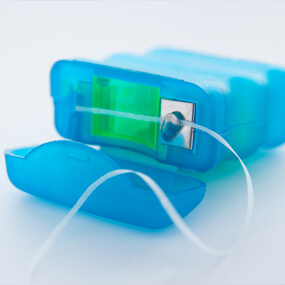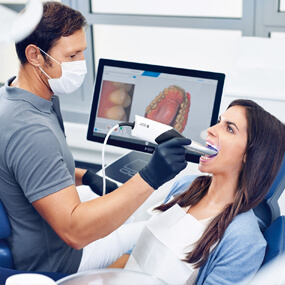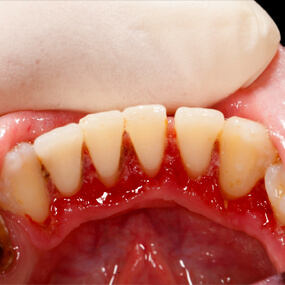Is Sugar Really That Bad for Your Teeth?

Many people have it engrained in them since childhood: sugar causes cavities. But the truth is, sugar does not rot your teeth—at least not directly. That does not mean you should throw caution to the wind and gorge yourself on candies and other sweets. A diet high in sugar certainly sets the conditions for tooth decay and can lead to obesity and a host of other medical complications.
Then what causes cavities? Bacteria! You have many different types of bacteria in your mouth. Some of these bacteria are necessary for good oral health, but other bacteria can react with certain food particles and lead to dental cavities. Food particles that contain carbohydrates are particularly problematic and include not only candies and cookies but also breads and even fruits.
So, these bad bacteria digest those carbohydrates left behind in your mouth and create acid. That acid then reacts with your saliva to create plaque. Plaque is that sticky substance your dentist is always on about. It is that plaque rather than sugar itself that causes tooth decay. The process of creating plaque happens whenever you eat, and so it is imperative to brush, floss, and rinse on a regular basis.
When plaque remains on your teeth, it erodes your enamel, which is the protective layer of your teeth. This erosion initially happens as tiny holes, and these are the beginning of a cavity forming. Left untreated, plaque becomes calculus—also known as tartar—which you cannot remove at home!
Those holes may be tiny, but they can lead to big problems. After the acid and bacteria in the plaque have compromised your enamel, they will begin to attack the soft underlayer—the dentin—and eventually the pulp, which is home to the nerves and blood vessels of your teeth. When decay reaches your pulp, you can experience extreme sensitivity, severe toothache pain, and even abscesses.
While an apple can be just as bad as a candy bar in terms of cavities, that is just one part of the story. Fruit can be a component of a healthy balanced diet. Candy is just empty calories. It is important to adjust your diet with oral health in mind. Certain candies and breath mints—but also cereals and raisins—can stick to your teeth. Yogurts and most fresh fruits are removed by the saliva in your mouth.
How we eat can be a factor as well. Sipping a carbonated beverage over a long period is much worse for your teeth than drinking the entire can quickly. Those acids can affect your teeth for up to 30 minutes after you have finished, and so sipping can mean that your teeth are under constant attack throughout the day. However, sipping that beverage through a straw can limit that negative effect considerably.
Carbonated beverages tend to contain many different acids for flavor and mouth feel purposes, but those acids, such as citric and phosphoric, have been shown to erode tooth enamel as well. Did you know that diet soda tends to have more acid than regular soda? This is done to bolster the flavor and compensate for the lack of sugar, and it means that diet soda is actually worse for your teeth than sugary soda!
Keep Your Teeth Plaque-Free
Getting rid of plaque starts at home by brushing, flossing, and rinsing on a regular basis. But you also need regular visits to the dentist to remove any plaque you missed and to examine your mouth for gingivitis and other potential issues. Jeffrey D. Clark, DDS, can help you with that! Dr. Jeff is among the leading dentists serving the Greater Scottsdale area, and he and his entire team at Scottsdale Cosmetic Dentistry Excellence are committed to beautiful, plaque-free smiles. Call us today at 480 585 1853.




